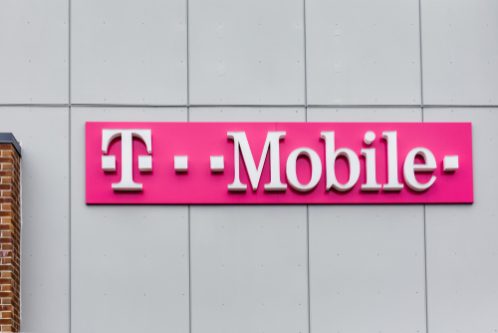
A federal judge in Chicago has ruled that T-Mobile US must face a lawsuit brought by AT&T and Verizon subscribers who claim that T-Mobile’s merger with rival Sprint negatively impacted competition and led to billions of dollars in additional expenses for wireless services. The lawsuit alleges that the $26 billion merger resulted in higher prices for consumers, reported Reuters.
U.S. District Judge Thomas Durkin issued a 41-page ruling on Thursday, stating that the plaintiffs had made “plausible” arguments that the price hikes were a direct consequence of the merger. The consumers’ lawsuit in Chicago is pursuing a class action on behalf of seven AT&T and Verizon subscribers in Illinois and Indiana, who have described the T-Mobile-Sprint merger as “one of the most anti-competitive acquisitions in history.”
Brendan Glackin, an attorney representing the plaintiffs, expressed their gratitude for the court’s “well-considered order” and their eagerness to proceed with the case.
Under federal antitrust law, consumers, small businesses, and others have the right to pursue private challenges to mergers or acquisitions, separate from government enforcement actions.
Related: T-Mobile To Buy Ryan Reynolds’ Mint Mobile For Up to $1.35 Billion
Although a group of states had previously sued over the T-Mobile-Sprint deal, a federal judge in Manhattan ruled against them in 2020, clearing the path for the merger to proceed. The U.S. Department of Justice was not part of the lawsuit but reached a settlement with the merged company, which required the divestiture of some assets to satellite operator DISH Network.
Notably, AT&T and Verizon are not directly involved in the case. AT&T declined to comment on Friday, and Verizon had not immediately responded to requests for comment.
T-Mobile’s attorneys, on the other hand, described the lawsuit as “unprecedented” and argued that the plaintiffs’ damages were based on speculation. They suggested that if the subscribers were dissatisfied with AT&T and Verizon, they had the option to switch to T-Mobile, as the wireless market offers competitive alternatives.
The outcome of this legal battle could have significant implications for the telecommunications industry, potentially reshaping the landscape of wireless services and competition. The case will now proceed to trial, where both sides will present their arguments and evidence.
Source: Reuters
Featured News
Big Tech Braces for Potential Changes Under a Second Trump Presidency
Nov 6, 2024 by
CPI
Trump’s Potential Shift in US Antitrust Policy Raises Questions for Big Tech and Mergers
Nov 6, 2024 by
CPI
EU Set to Fine Apple in First Major Enforcement of Digital Markets Act
Nov 5, 2024 by
CPI
Six Indicted in Federal Bid-Rigging Schemes Involving Government IT Contracts
Nov 5, 2024 by
CPI
Ireland Secures First €3 Billion Apple Tax Payment, Boosting Exchequer Funds
Nov 5, 2024 by
CPI
Antitrust Mix by CPI
Antitrust Chronicle® – Remedies Revisited
Oct 30, 2024 by
CPI
Fixing the Fix: Updating Policy on Merger Remedies
Oct 30, 2024 by
CPI
Methodology Matters: The 2017 FTC Remedies Study
Oct 30, 2024 by
CPI
U.S. v. AT&T: Five Lessons for Vertical Merger Enforcement
Oct 30, 2024 by
CPI
The Search for Antitrust Remedies in Tech Leads Beyond Antitrust
Oct 30, 2024 by
CPI